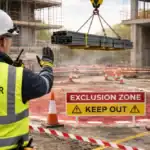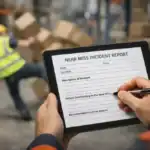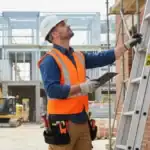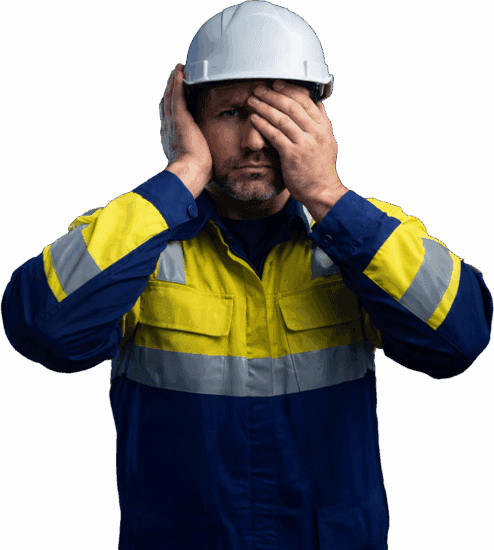
A fire in your workplace could cripple your business and harm your employees. All business and property owners in the UK have a legal obligation to ensure that their property or premises are compliant with fire safety legislation. These requirements are outlined in the Regulatory Reform (Fire Safety) Order 2005.
A fire marshal can be appointed by a manager or by the business or property owner. Since landlords, owners and managers are not always on-site, it is a legal requirement to appoint a fire marshal at your workplace. They must ensure that all legal obligations are met, and that the workplace maintains an acceptable level of fire safety.
This article explains what a fire marshal is, outlines the duties of a fire marshal and provides information on how to find fire marshal training.
What is a Fire Marshal?
Under the regulations, landlords, owners and managers must act to ensure fire safety, by implementing fire risk assessment procedures, providing fire awareness training and ensuring that all fire safety protocols are adhered to.
All workplaces in the UK should have a person who understands what the fire marshal responsibilities are and how to carry them out effectively.
The responsible person can be an/a:
- Employer
- Landlord
- Owner of the building
- Person occupying the building
- Manager, managing agent or risk assessor, or any other person who has control over the building
The responsible person must appoint a fire marshal whose role is to make certain that all fire risks are identified and that all fire safety protocols are being followed. If there is an emergency, the duty of the fire marshal is to make sure that all people are able to exit the building safely and that the area in the immediate vicinity of the building is safe.
Fire Warden Training
Our Fire Warden Training course helps trainees familarise with the role of fire wardens, the vital roles and responsibilities, fire prevention and evacuation principles and effective ways to extinguish small fires.
6 Key Fire Marshal Responsibilities
Under the Regulatory Reform (Fire Safety) Order 2005, the responsible person must appoint a competent person to implement fire safety measures. Most often, this person is designated as the fire marshal.
Appointed fire marshals can assist in fire safety compliance responsibilities. Common fire marshal duties include:
Identifying and Reporting Fire Hazards
Fire marshals can have a duty to regularly inspect the workplace for potential fire hazards, such as unsafe equipment, poor housekeeping, blocked exits, or faulty fire systems.
Carrying Out Fire Risk Assessments
Competent fire marshals can carry out fire risk assessments of the premises. These assessments must be regularly reviewed, and findings must be recorded. Fire marshals can also advise on compliance with fire safety legislation.
Ensuring Appropriate Fire Safety Measures
Fire marshals can be appointed to carry out fire safety equipment inspections, testing and maintenance of alarms, extinguishers, signage and emergency lighting. They can also have fire compartmentation duties, such as inspection and maintenance of fire doors. They must be competent to perform these duties sufficiently.
Extinguishing Small Fires
Workplaces must have a sufficient number of trained people nominated to use firefighting equipment. Fire marshals can help meet this duty.
Trained persons can fight small fires, but only if it’s necessary and safe to do so. Employers must provide them with sufficient training in fire extinguishing equipment.
Additional Duties in Case of a Fire
Fire marshals can be nominated to guide evacuation, assist vulnerable persons, check that designated areas are clear and liaise with emergency services. Everyone in the premises must be informed about the identities of the people who will assist with evacuation and firefighting.
Administering First Aid
Trained fire marshals may administer first aid to injured persons during a fire incident. Those who are also trained as first aiders can help meet duties under the Health and Safety (First-Aid) Regulations 1981.
In general, fire marshal responsibilities can be split into duties that must be performed on a daily basis and duties that must be carried out in the event of a fire.
The Responsibilities of a Fire Marshal on a Daily Basis
During normal day-to-day operations, a fire marshal will usually carry out the following tasks:
- Conduct periodic fire risk assessments
- Update fire risk assessments and fire protocols if workplace conditions change
- Ensure all fire evacuation routes are unobstructed
- Dispose of any materials that pose a fire risk
- Ensure that all flammable or hazardous materials are stored correctly
- Ensure that all fire safety signs are visible
- Ensure that all fire evacuation signs are in working order
- Make certain that all firefighting equipment is in working order and stored correctly
- Check that fire detection equipment and fire alarms are in working order
- Delegate duties to nominated deputies with appropriate training
- Plan and map fire evacuation routes
- Establish fire assembly points
- Organise and conduct fire drills
- Train new employees on fire safety protocols
- Provide refresher training on fire safety protocols for existing employees
- Check that all electrical connections comply with fire safety regulations
- Keep a record of all fire safety activities
The Responsibilities of a Fire Marshal in an Emergency
When a fire breaks out, it’s common for people to panic and forget what they learned in their training. The situation can quickly become chaotic, and in the confusion, people can become injured or act in ways that exacerbate the fire – such as opening doors to create a backdraft that stokes flames.
A fire marshal must remain calm and act to ensure others remain calm too. The fire marshal responsibility is to organise the evacuation of the building in a prompt but orderly manner. Human Focus has a free infographic on these duties that that can be shared.
If a fire does start in a building, the nominated fire marshal is responsible for:
- Raising the alarm and notifying authorities as soon as a fire is detected
- Keeping all fire doors and doors to fireproof spaces closed
- Helping any vulnerable people to evacuate the building safely
- Performing a roll call and headcount to ensure all personnel are evacuated
- Coordinating and communicating with emergency responders such as the fire brigade or paramedics
- Where safe to do so, curbing the spread of the fire, using appropriate firefighting equipment
Duties Under the Fire Safety Order 2005
The responsible person is ultimately accountable for compliance with the Regulatory Reform (Fire Safety) Order 2005. However, a responsible person can appoint others to assist with their duties.
Here are some of the key duties under the Fire Safety Order that fire marshals may share:
- Support General Fire Precautions: Assist in identifying and mitigating fire hazards to ensure the safety of employees and visitors.
- Help With Fire Risk Assessments: Help carry out fire risk assessments by gathering relevant information and supporting the assessor in identifying risks.
- Manage Risks from Dangerous Substances: Monitor storage and handling procedures for hazardous materials to minimise fire risks.
- Check Firefighting Equipment: Check that fire extinguishers and other firefighting equipment are accessible and in working order.
- Check Emergency Routes and Exits: Ensure that emergency exits are clearly marked, unobstructed and easy to access.
- Check Fire Alarms: Conduct routine checks to confirm that fire safety systems, such as alarms and lighting, are functioning correctly.
- Provide Information and Training: Fire marshals may deliver fire safety briefings to employees or assist in organising fire drills to ensure everyone knows emergency procedures.
Employees also have a duty to take reasonable care of their own and others’ safety and to cooperate with their employers in fire safety matters. As employees, fire marshals must also meet these duties.
What Does Fire Marshal Training Involve?
Training for fire marshals must cover a wide range of fire safety topics.
Fire marshal training must include:
- How to perform a fire risk assessment,
- How to identify and operate different types of fire extinguishers,
- How to develop and enforce fire safety procedures and
- How to conduct fire door inspections.
To perform their duties effectively, fire marshals must be trained to be aware of:
- Fire marshal responsibilities
- Procedures that must be followed in the event of a fire
- The location of all entrances and exits in the building
- All fire doors in the building
- All firefighting equipment in the building
- All fire alarm call points in the building
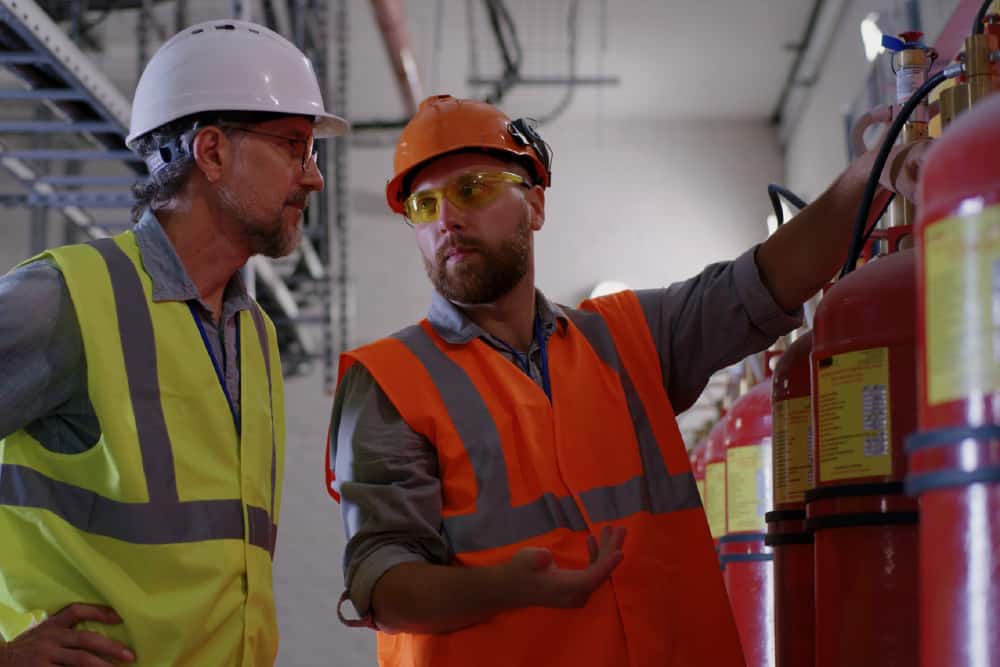
Where to Find Fire Marshal Training
Any person that is appointed as a fire marshal is taking on a serious role that has the potential to save lives. Fire marshals require training so they can properly understand the duty of the fire marshal, all aspects of the role and perform the duties of a fire marshal effectively.
The Fire Safety courses from Human Focus give you the knowledge to carry out all relevant fire marshal responsibilities. All of the Human Focus Fire Safety Courses are available online so you can fit your training around your work schedule. These courses have the assurance of respected authorities such as the Royal Society for the Prevention of Accidents (RoSPA) and the International Institute of Risk & Safety Management (IIRSM).













